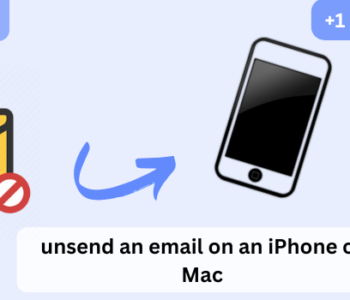 Game
Game
Native vs Hybrid App Development: Which One Is Right for You?
- by johnmichae1
In today’s digital landscape, mobile applications have become indispensable tools for businesses aiming to enhance customer engagement, streamline operations, and drive growth. As organizations embark on the journey of mobile app development, a pivotal decision arises: should they opt for native or hybrid app development? This comprehensive guide delves into the intricacies of both approaches, aiding businesses in making informed choices aligned with their objectives.
Understanding Native App Development
Definition: Native app development involves creating applications tailored specifically for a particular operating system (OS), such as Android or iOS. These apps are developed using platform-specific programming languages and tools—Java or Kotlin for Android, and Swift or Objective-C for iOS.
Advantages:
-
Optimal Performance: Native apps leverage the full potential of the device’s hardware and OS, resulting in faster execution and smoother user experiences.
-
Enhanced User Experience (UX): By adhering to platform-specific design guidelines, native apps offer intuitive interfaces that resonate with users’ expectations.
-
Access to Device Features: Native development allows seamless integration with device functionalities like the camera, GPS, and push notifications.
-
Robust Security: Native apps benefit from built-in security features of the OS, ensuring data protection and user privacy.
Considerations:
-
Higher Development Costs: Building separate apps for different platforms can be resource-intensive.
-
Longer Time-to-Market: Developing and maintaining multiple codebases may extend the development timeline.
Exploring Hybrid App Development
Definition: Hybrid app development combines elements of both native and web applications. These apps are built using web technologies like HTML, CSS, and JavaScript, and are encapsulated within a native container, allowing them to run across multiple platforms.
Advantages:
-
Cost-Effectiveness: A single codebase reduces development and maintenance expenses.
-
Faster Development Cycle: Reusing code accelerates the development process, facilitating quicker deployment.
-
Cross-Platform Compatibility: Hybrid apps can operate on various OS platforms, broadening the potential user base.
-
Simplified Maintenance: Updates can be rolled out simultaneously across platforms, ensuring consistency.
Considerations:
-
Performance Limitations: Hybrid apps may not match the speed and responsiveness of native apps, especially for graphics-intensive tasks.
-
Limited Access to Device Features: While plugins can bridge some gaps, access to certain native functionalities might be restricted.
-
User Experience Variability: Achieving a consistent UX across platforms can be challenging due to inherent differences in OS behaviors.
Key Factors Influencing the Choice Between Native and Hybrid
-
Project Requirements: Complex applications with high-performance needs, such as gaming or AR apps, may benefit from native development. Conversely, content-driven apps might be well-suited for hybrid development.
-
Budget Constraints: Limited budgets may favor hybrid development due to its cost-saving potential.
-
Time-to-Market: If rapid deployment is crucial, the expedited development cycle of hybrid apps can be advantageous.
-
Target Audience: Understanding the predominant device usage among the target demographic can guide the platform choice.
-
Long-Term Maintenance: Consideration of future updates and scalability is essential in selecting the appropriate development approach.
Role of Mobile Application Development Agencies
Partnering with a reputable mobile application development agency can significantly influence the success of your app. These agencies offer expertise in both native and hybrid development, providing tailored solutions that align with your business goals.
Services Offered:
-
Android Application Development Services: Crafting robust and scalable apps for the Android ecosystem, ensuring compatibility across a range of devices.
-
iOS Application Development Services: Developing intuitive and high-performing apps for Apple’s iOS platform, adhering to stringent App Store guidelines.
-
Cross-Platform Development: Utilizing frameworks like React Native or Flutter to build apps that function seamlessly across multiple platforms.
-
UI/UX Design: Creating engaging and user-friendly interfaces that enhance user satisfaction and retention.
-
Quality Assurance and Testing: Implementing rigorous testing protocols to ensure app reliability and performance.
Collaborating with a Web and App Development Company
Engaging with a comprehensive web and app development company offers the advantage of integrated solutions that encompass both mobile and web platforms. This holistic approach ensures consistency in branding, user experience, and functionality across all digital touchpoints.
Benefits:
-
Unified Development Strategy: Streamlined processes and cohesive design across platforms.
-
Resource Optimization: Efficient utilization of resources through shared codebases and collaborative teams.
-
Enhanced Support: Ongoing maintenance and support services to address evolving business needs.
Conclusion
The decision between native and hybrid app development hinges on various factors, including performance requirements, budget considerations, and target audience preferences. While native apps offer superior performance and user experience, hybrid apps provide cost-effective and expedited solutions suitable for a broad range of applications.
Collaborating with a seasoned mobile application development agency or a comprehensive web and app development company can provide the necessary expertise and resources to navigate this decision effectively. By aligning development strategies with business objectives, organizations can deliver compelling mobile experiences that drive engagement and growth.









